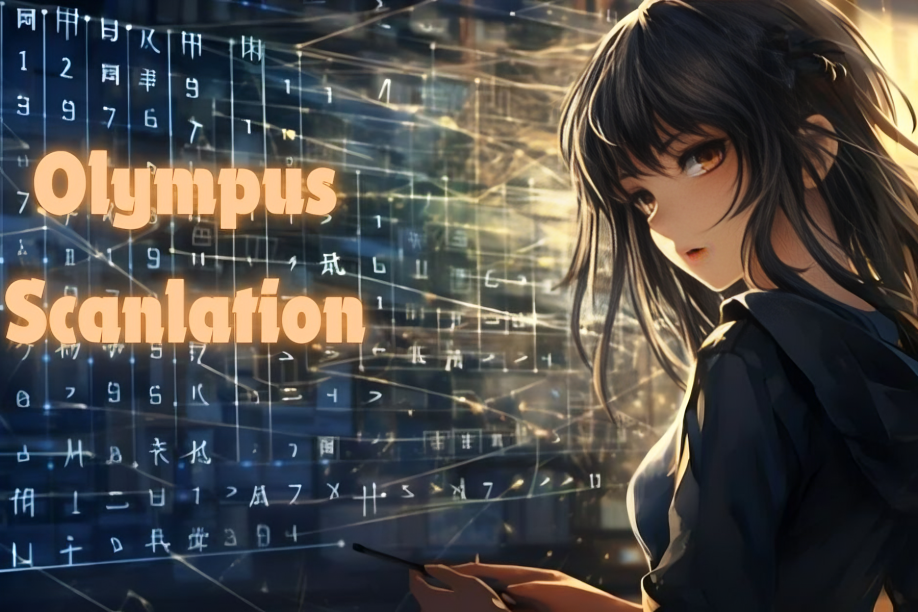
olympus scanlation
Introduction
In a fast-paced world where instant gratification is the norm, Olympus Scanlation has emerged as a vital resource for manga lovers yearning to explore their favorite stories without the agonizing wait often imposed by traditional publishing timelines. For many fans, the slow pace of official releases can feel excruciating, leading them to seek out alternative avenues to satisfy their cravings for new content. Enter scanlation: an underground movement that makes Japanese manga accessible to readers around the globe.
But what is Olympus Scanlation, really? It transcends mere translation and distribution of popular titles; it represents a complex, community-driven process fueled by individuals passionate about sharing their love of manga. In this article, we will delve into the nuances of this captivating movement and examine its impact on readers and the broader industry.
What is Olympus Scanlation?
Olympus Scanlation is a fan-driven initiative dedicated to translating manga from Japanese to English, thus broadening its accessibility to a global audience. Unlike official translations, which are conducted by professional teams, scanlations are typically the work of volunteers who are deeply passionate about the content and want to share it with those who may not have the ability to read Japanese. Olympus Scanlation is particularly focused on providing high-quality translations of manga titles that have not yet seen an official English release or are unavailable in certain regions.
How Does Olympus Scanlation Work?
The workings of Olympus Scanlation resemble those of many other scanlation groups, yet they maintain a strong emphasis on quality and community engagement. Here’s a brief overview of their process:
Selection of Manga Titles:The journey begins with the selection of manga titles that resonate with the community or are actively requested by fans. The team often gravitates toward works that official publishers have overlooked, allowing them to shine a spotlight on deserving stories.
Translation:Once a title is chosen, a dedicated group of translators dives into the text, transforming the Japanese script into English. This step is critical; maintaining the integrity of the original narrative while ensuring readability for an English-speaking audience is no easy task.
Editing and Proofreading:Following the translation, the text undergoes a rigorous editing process. Editors work to ensure that the text flows smoothly in English, correcting any errors or awkward phrases that could disrupt the reading experience. Proofreading is a vital aspect of this phase, aimed at catching any lingering mistakes.
Typesetting:After the text has been edited and polished, it’s time to integrate it back into the manga panels. This typesetting stage requires skill to ensure that the translated text fits seamlessly within the original artwork, all while remaining clear and readable.
Quality Check:Before the final product is made available to the public, a comprehensive quality check is conducted. This final review ensures that the scanlation meets Olympus Scanlation’s high standards, preserving both the art and the story.
Release:Once every detail is perfected, the scanlation is released to the public, typically via their website or through affiliated manga reading platforms. This timely release allows eager fans to dive into new chapters as soon as they become available.
Why is Olympus Scanlation Popular?
Several factors contribute to the rising popularity of Olympus Scanlation among manga enthusiasts:
Quality Translations:Olympus Scanlation is well-regarded for its meticulous translation processes. The team strives to remain true to the original Japanese text while making it comprehensible for English readers. This dedication to quality sets them apart from many other scanlation groups.
Community Engagement:The group actively involves its community by soliciting suggestions and feedback. This inclusive approach allows fans to play a role in determining which manga titles are translated next, fostering a sense of belonging and loyalty among readers.
Timely Releases:One of Olympus Scanlation’s most significant draws is its ability to provide timely releases. The group often publishes translations shortly after the original Japanese chapters become available, giving fans a quick way to keep up with their favorite series.
Focus on Lesser-Known Manga:While many scanlation groups gravitate toward mainstream titles, Olympus Scanlation often highlights lesser-known or niche manga. This focus on hidden gems gives these works the chance to reach a wider audience and find their place in the community.
The Role of Scanlators in the Manga Community
Scanlators serve a crucial role in the manga community. They act as intermediaries between creators and fans, particularly for those who can’t wait for official releases. Their efforts make numerous titles accessible to readers worldwide, enhancing the overall enjoyment of manga culture.
These dedicated individuals often work under tight schedules, dedicating their free time to translating scripts, editing artwork, and formatting pages. Their passion for manga drives them to contribute, and this behind-the-scenes effort is a testament to their commitment.
Moreover, scanlation cultivates a vibrant community among fans. Readers can engage in discussions about plotlines, character developments, and other aspects of the stories long before official translations are available. The enthusiasm for shared interests is a powerful motivator, and scanlation is an essential component of this dynamic.
However, the scanlation landscape is not without controversy. While some creators and publishers appreciate the exposure that comes from scanlations, others view them as piracy that can adversely affect sales.
Navigating this landscape requires a delicate balance of passion for manga and respect for the original content creators. The ongoing dialogue about the implications of scanlation is crucial in understanding its place within the broader manga ecosystem.
Advantages and Controversies of Scanlation
Scanlation offers several benefits that have contributed to its popularity among fans. For many, it provides a means to access manga that isn’t yet available in their region, allowing readers to experience stories and art styles they might otherwise miss.
Additionally, scanlators often fill gaps left by official translations, especially in niche genres or lesser-known titles. This emphasis on diversity enriches the manga community by broadening readers’ horizons.
However, this practice is not without its controversies. Critics argue that scanlation undermines original creators and publishers by diverting potential sales from official releases. The unauthorized nature of these translations can raise ethical questions about intellectual property and creative rights.
Furthermore, concerns exist regarding the quality of amateur translations compared to professional ones. Errors in translation can misrepresent characters or plotlines, confusing readers rather than enhancing their experience. While scanlation promotes accessibility and engagement with a wide array of content, the ethical implications warrant careful consideration.
Best Websites for Olympus Scanlated Manga
When exploring Olympus Scanlation, knowing where to find quality scanlated manga is essential. Several platforms cater to manga enthusiasts seeking these fan-made translations.
- MangaDex: A popular site with a user-friendly interface, MangaDex hosts an extensive collection of scanlated titles. Readers can easily navigate various genres and discover hidden gems.
- Bato.to: This platform boasts a vast library of Olympus Scanlations and employs a community-driven approach. Users can contribute their favorite series while providing updates on ongoing projects, fostering a collaborative environment.
- Webtoon: For mobile users, Webtoon offers access to several scanlated works in an app format. This convenience makes it easy for readers to enjoy manga on the go.
- Reddit: Various Reddit communities are dedicated to manga discussions. Users often share links and recommendations for different scanlation sites, keeping fans informed about the latest releases and trends within the community.
Impact on the Manga Industry
Olympus Scanlation has significantly influenced the manga industry, reshaping how fans access and consume content. For readers who crave instant access to new chapters, scanlations provide a quick fix that official releases often cannot match.
However, this immediacy can pose challenges for publishers and authors. When fans consume translated content before its official release, it can potentially hurt sales. Some argue that scanlation may spark interest in series that would otherwise go unnoticed, making it a double-edged sword.
On the positive side, scanlation can introduce diverse titles to broader audiences. Many fans discover their favorite stories through fan translations and later support the creators by purchasing legitimate copies. The ongoing debate about whether scanlation enhances or undermines the manga ecosystem reflects shifting consumer behaviors in an increasingly digital landscape.
Conclusion
The rise of Olympus Scanlation has generated considerable discussion within the manga community. Its ability to provide rapid access to popular titles appeals to many fans eager for their next read. The convenience and speed offered by scanlation groups have carved out a niche that traditional publishers may find challenging to compete with.
However, this phenomenon is not without its controversies. While some view it as a way to expose lesser-known works, others emphasize the potential harm to original creators and the industry at large. As more readers gravitate toward unofficial translations, questions about sustainability and ethics become increasingly pertinent.
Despite these challenges, it seems that Olympus Scanlation is unlikely to fade away anytime soon. The demand for immediate content continues to rise, fueled by the global trend of digital consumption. For those who can’t wait for or afford official releases, scanlations serve a vital purpose.
As long as there is a demand for instant access to diverse stories from Japan’s rich array of manga titles, Olympus Scanlation will maintain its relevance in today’s fast-paced entertainment landscape. The impact of this movement on traditional publishing models remains uncertain, but vital discussions among fans and creators are sure to persist.
FAQs
1. What is Olympus Scanlation?
Answer: Olympus Scanlation is a fan-driven initiative that translates Japanese manga into English, making it accessible to a global audience. Unlike official translations, Olympus Scanlation relies on volunteers who are passionate about manga and aim to provide high-quality translations, particularly for titles not yet officially released in English.
2. How does Olympus Scanlation work?
Answer: The process involves several steps: selecting manga titles based on community interest, translating the text, editing and proofreading the translations, typesetting the text into manga panels, conducting quality checks, and finally releasing the completed scanlation to the public via their website or affiliated platforms.
3. Why is Olympus Scanlation popular among manga fans?
Answer: Olympus Scanlation is popular for its quality translations, timely releases shortly after original Japanese chapters are available, and its focus on lesser-known or niche manga titles. The community engagement aspect also fosters a sense of belonging among fans.
4. What role do scanlators play in the manga community?
Answer: Scanlators act as intermediaries between creators and fans, providing access to titles that may not be available through official channels. They enrich the manga community by enabling discussions and engagement around various series, while also supporting the broader appreciation of manga culture.
5. What are the advantages of scanlation?
Answer: Scanlation offers benefits such as increased accessibility to manga that may not be officially available in certain regions, filling gaps left by official translations, and promoting diversity in storytelling by showcasing lesser-known titles.
6. What controversies surround scanlation?
Answer: Critics argue that scanlation can undermine original creators and publishers by diverting potential sales from official releases. Additionally, the quality of amateur translations can sometimes be inconsistent, potentially confusing readers rather than enhancing their experience.
7. Where can I find Olympus Scanlated manga?
Answer: Quality scanlated manga can be found on various platforms, including MangaDex, Bato.to, and Webtoon. Additionally, Reddit communities often share links and recommendations for different scanlation sites, helping fans stay updated on the latest releases.
8. How has Olympus Scanlation impacted the manga industry?
Answer: Olympus Scanlation has reshaped how fans access and consume manga content. While it provides quick access to new chapters, it can also challenge publishers and authors by affecting sales. Nevertheless, scanlation can introduce diverse titles to new audiences, potentially increasing support for creators in the long run.
9. Is scanlation legal?
Answer: Scanlation operates in a legal gray area. While it provides access to content that might otherwise be unavailable, it often involves unauthorized translations, raising ethical questions about copyright and intellectual property rights.
10. Will Olympus Scanlation continue to exist in the future?
Answer: Given the rising demand for immediate access to diverse stories from Japan’s rich manga landscape, it seems that Olympus Scanlation and similar initiatives will likely continue to thrive, even as discussions about sustainability and ethics evolve within the manga community.
Stay up-to-date with the latest celebrity news and gossip at chicagoreader.blog





